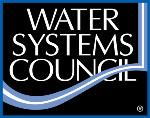
Bipartisan Water Supply Cost Savings Act Introduced in Senate to Help Address Rural Communities’ Water Infrastructure Funding Crisis

Washington, DC — On June 22, 2015, Senators John Boozman (R-AR), Jon Tester (D-MT) and Ben Cardin (D-MD) introduced the bipartisan ‘‘Water Supply Cost Savings Act,’’ or ‘‘Savings Act,’’ legislation to provide small communities across the nation with critical information on the use of water wells and water well systems to deliver high quality, affordable drinking water.
The bipartisan Savings Act (S. 1642) was greeted with enthusiastic support from the water supply industry, including the Water Systems Council, the Water Quality Association and the National Groundwater Association.
“We are extremely grateful to Senator Boozman, Senator Tester and Senator Cardin for advancing legislation that will assist thousands of small communities in delivering high quality, affordable drinking water to millions of Americans,” said Margaret Martens, Executive Director of the Water Systems Council. “The bipartisan Water Supply Cost Savings Act will ensure that USDA and EPA provide those charged with delivering drinking water in rural America with critical information on the use of wells and well systems.
“Wells are a reliable, cost-effective way for budget challenged communities to provide safe drinking water for their residents. The Water Supply Cost Savings Act is a win for rural America and the American taxpayer. The Savings Act is aimed at reducing the costs to federal, state, and local governments in providing quality drinking water to millions of Americans living in rural and isolated communities by promoting cost-effective community well water systems.”
To assist small communities with their consideration of drinking water technology needs, the Savings Act establishes a Drinking Water Technology Clearinghouse where the Administrator of the Environmental Protection Agency and the Secretary of Agriculture will disseminate information on cost-effective, innovative, and alternative drinking water delivery systems, including systems that are supported by wells.
“Many Arkansans rely on water wells to provide safe, affordable, and reliable drinking water. For small, isolated communities, these wells can save money and make life better. This bill will encourage agencies to support this low-cost solution by providing technical support. The bill also encourages small communities to consider water wells as one of the supply options when new water systems are built,” Boozman said.
“Access to clean drinking water is critical for the health of every rural community and in many cases well systems are the most cost-effective way to deliver it to the tap,” Tester said. “This bill will help raise awareness about all the water infrastructure options that are available to local communities so they can provide safe and reliable water to families, small businesses, and family farms and ranches in rural America.”
“Wherever you live, all Americans deserve access to safe and clean drinking water. Having modern and reliable water infrastructure protects public health, conserves natural resources, saves energy and creates jobs,” said Cardin, a senior member of the Senate Environment and Public Works Committee. “This legislation helps remove some of the technical and financial barriers to clean water that rural communities face while improving quality of life.”
The most recent EPA Water Drinking Needs Survey reflects a shortfall of $64 billion in drinking water infrastructure funding. The Water Supply Cost Savings Act, S. 1642 would update existing EPA and U.S. Department of Agriculture (USDA) programs to provide cost-saving information about innovative and alternate drinking water delivery systems including those supported by wells. The legislation also requires that alternative drinking water supplies such as individual, shared and community wells be considered in applications for federal funding for drinking water systems serving 500 or fewer people.
Buzz Mills, president of Billings, Montana-based 2M and a member of the WSC board, noted that, “As one of the largest wholesale distributors of equipment for the water well industry that was originally founded in Montana, we are very proud of Senator Tester’s leadership on the bipartisan Savings Act. Not only will this legislation help rural America and other small community systems afford to meet critical their water needs, it will also support domestic manufacturing and jobs.”
 Water Systems Council
Water Systems Council